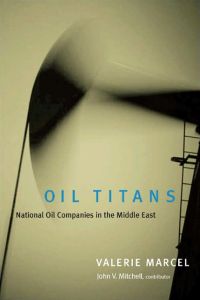Join getAbstract to access the summary!

Join getAbstract to access the summary!
Valerie Marcel and John V. Mitchell
Oil Titans
National Oil Companies in the Middle East
Brookings Institution Press, 2006
What's inside?
How national oil concerns in Kuwait, Saudi Arabia, Iran, Abu Dhabi and Algeria balance business and government interests.
Recommendation
Don't look now, but five nationally owned oil companies (NOCs) control more than half the world's reserves of oil and natural gas. In today's media culture you might expect those firms to be under a constant microscope, but their operations tend to be cloaked in bureaucratic smoke. Valerie Marcel's book sheds valuable light on the way these companies operate and their red-tape constraints. While the book suffers from a rather colorless presentation, it more than compensates with insights into what the NOCs are and how they relate to the world's insatiable thirst for petroleum. getAbstract recommends this report to serious students of the global energy business.
Summary
About the Authors
Valerie Marcel is a principal researcher at Chatham House, the Royal Institute for International Affairs, a leading independent research organization. An expert on energy issues, she co-authored Iraq's Oil Tomorrow with associate research fellow John V. Mitchell.

















Comment on this summary